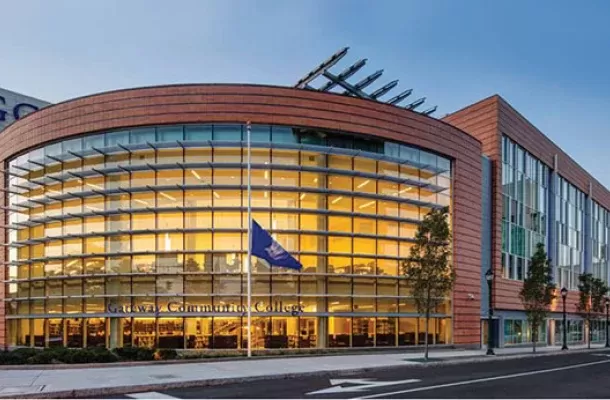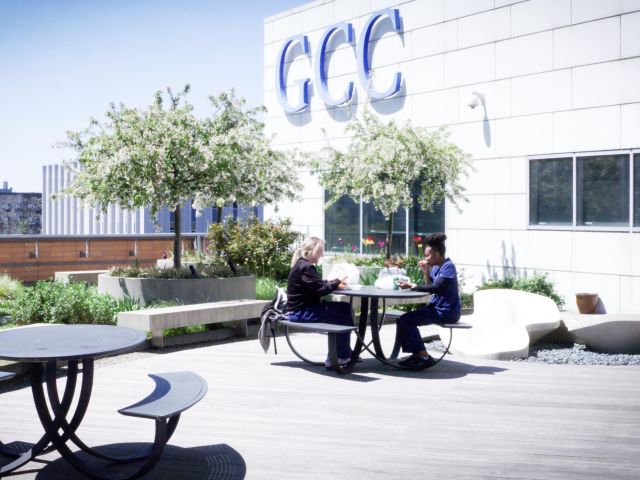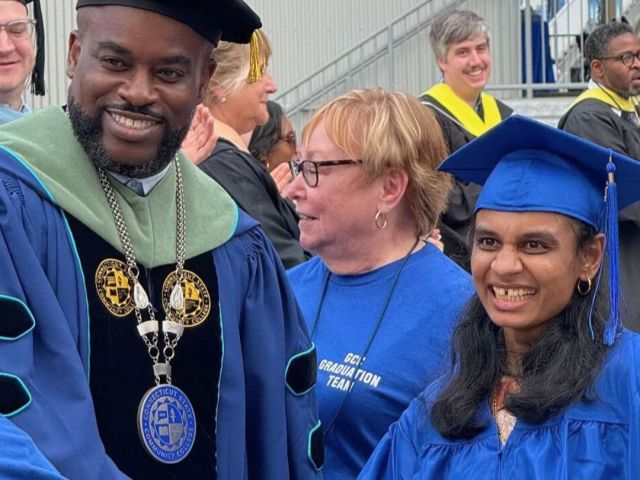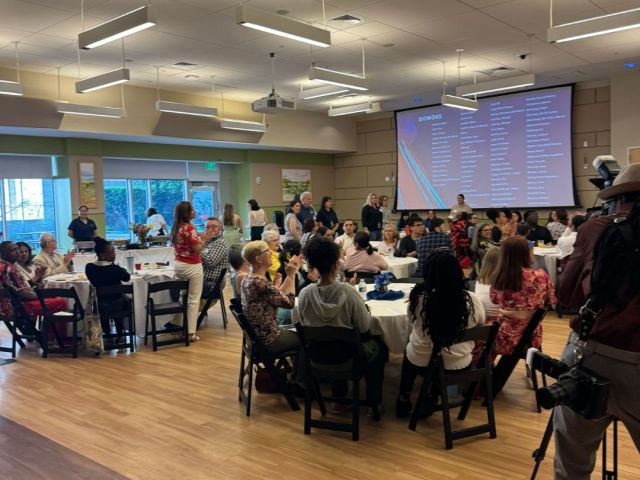News Center
Bringing you the latest news and events from Gateway Community College.
Alternative Fuels: Cutting Costs, Sustaining the Environment
Share
At a time when cost cutting is vital to towns, cities and businesses and sustaining a healthy environment is part of the national conversation, Gateway Community College (GCC), the Norwich Clean Cities Coalition and the National Alternative Fuels Training Consortium (NAFTC) sponsored a workshop on Petroleum Reduction Technologies. The workshop was held at GCC October 4 and 5.
“Our goal is to encourage leaders of towns and cities, public utilities and private companies to consider switching to alternative fuel and alternative fuel vehicles,” said Wayne Demske, GCC professor and coordinator of the Automotive Technology Program. “The difference in financial cost and the cost to the environment and people’s health is huge.”
City governments, utility companies and private firms often have dozens, even hundreds of cars in their fleets so changing the way they use fuel and the cars they drive could make quite an impact not only on their bottom line but also on the environment, Demske said.
Gateway has long been at the forefront of clean technologies and continues to take a leadership role. GCC is one of just a dozen colleges across the country designated as a training center on alternative fuels and the only college in the state so designated.
“We are looking for opportunities for Gateway to be an active participant in the Clean Cities Consortium,” said Paul Silberquit, GCC Division Director of Engineering and Applied Technology. Gateway has a long history with the coalition and we are looking to continue participating and providing opportunities for the greater New Haven region.” The Clean Cities Coalition is a network of 100 coalitions with more than 10,400 stakeholders. Private companies, fuel suppliers, local governments, vehicle manufacturers, national laboratories, state and federal agencies and other groups have all joined together to find alternative transportation solutions.
On the first day of the workshop, Demske said they “trained the trainers,” coalition members from around the country who will take what they have learned back to their communities. Members were given curriculum materials designed by the Clean Cities Learning Program, NAFTC and the U.S. Department of Energy so they can, in turn, teach fleet managers, mechanics and members of the public about the very latest vehicles, technologies and range of fuel alternatives – including biodiesel, ethanol, natural gas and hydrogen. Demske said the curriculum materials paint a realistic picture of the many alternatives available and speak frankly about all the benefits as well as the costs. Following the morning session, participants took a tour of the new LEED gold certified GCC campus.
Speakers included Pete Polubiatko, Coordinator of the Norwich Clean Cities Coalition, Cathy Mezera, Clean Cities Learning Program Manager for NAFTC, and Tom Gadreau, Senior Mechanic for Norwich Public Utilities, who spoke about his fleet’s experience with light and heavy duty natural ga and electric vehicles.
On October 5, dozens of fleet managers from New Haven and across the state, as well as local and state officials, participated in sessions on the importance of the use of electric vehicles. Speakers addressed the incentives available to fleet managers when they purchase alternative fuel vehicles. Demske discussed the three electric car alternatives, the hybrid, the plug-in–hybrid and the fully electric vehicle.
While the sticker price for an electric car is still more than a gasoline-powered car, savings in fuel costs and greenhouse gas emissions are considerable. A sedan in a city’s fleet typically gets about 25 to 30 miles per gallon. A hybrid gets 50-60 and a plug-in electric car will run for up to 75 miles per gallon, with gas currently averaging $4.00 a gallon, the cost savings can be substantial, Demske said. At the natural gas workshop, Demske will address safety questions and access to fueling stations across the state and around the country. He said natural gas currently costs less than $2 a gallon.
Spreading the word about petroleum reduction to the next generation of engineers, mechanics and interested members of the public is also a goal of the workshop. At the afternoon session on October 5, GCC automotive students, mechanics and interested members of the public were invited to take part. The workshop was free.
The workshop’s focus, Demske said, was timely and important. According to the Clean Cities Coalition, in 2010 the U.S. imported 49 percent of the petroleum it consumed and two-thirds of the imports came from outside North America. Transportation accounts for 71 percent of the country’s petroleum consumption.
“The more we can do to cut down on our country’s need for petroleum, the better off we will all be,” he said.






